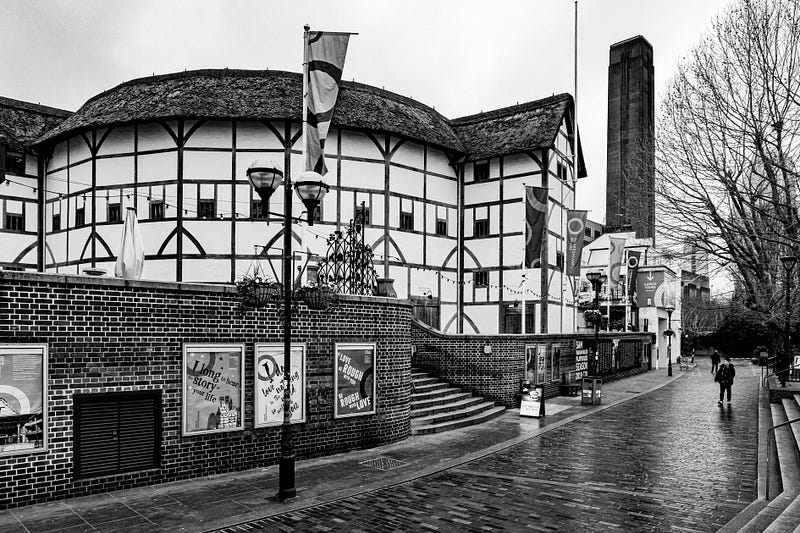A Discussion of Bourgeois Equality Chapter 32 “Bourgeois Shakespeare Disdained Trade and the Bourgeoisie”
As Dr. McCloskey has argued in previous chapters, the Great Enrichment that kicks off around 1800 cannot be explained by an improvement in institutions like property rights.
In this chapter, she again reminds us of the difference between necessary and sufficient.
Property laws are necessary but they are nothing like sufficient for the startling betterment that begins in the Industrial Revolution and eventuated in the still more startling Great Enrichment of the past 150 years — all of which, embarrassingly for the North-Acemoglu orthodoxy in economic history and development, happened a century or more after the allegedly sharp improvement of property rights out of 1688. (p. 296)
Now, she is adding to her case with the argument that society’s esteem for hierarchy that existed before the Great Enrichment had to be overcome, too, before the great economic growth could be unleashed.
A society can be individualistic in a thoroughgoing way but still only honor noblemen, not letting ordinary people have a go at spinning jennies and desktop computers. Roman sculpture (as a conventional if not obviously sound line in art history claims) was ‘individualistic’ in a way that Greek sculpture, which is said to have dealt in ideal figures, was not. Yet at Rome, as in Shakespeare’s England, rank told all. (p. 296)
She notes the dominance of the medieval idea from the 1600s and 1700s of The Great Chain of Being, a way of explaining the world that enshrined hierarchy.
Aristocratic England before its embourgeoisement was, on the whole and in its theory of itself, hostile toward betterment tested in trade. Betterment of the society at large was inconceivable in a zero-sum world, and betterment of position by an individual disturbed the Great Chain of Being. (p. 297)
Feudalism reigned in the medieval period and is a system that relied on hierarchy to work. Lords of the manor had great wealth, yes, but they owed a duty to their serfs. Peasants needed to work hard in their assigned role as well.
Shocks to the system like the Crusades, famines, and plagues ultimately contribute to the fall of feudalism and the rise of mercantilism — beginning with merchants trading in towns. The kings eventually came to recognize them as a source of wealth that could be taxed if in exchange they helped protect their trade, the bargain underlying the mercantilist system.
Culturally, however, neither the peasants or aristocrats cared for these upstarts.
In Shakespeare’s England, then the bourgeois virtues were not respectable. Sneered at, rather…The gentry and especially the aristocracy in Shakespeare’s England discounted bourgeois thrift and scorned the bourgeois work that earned the income with which to be thrifty…The unthrifty were landed English gentlemen puttin’ on the style. (p. 300)
The disdain is understandable. McCloskey’s trade-tested betterment system creates upheavals to the hierarchy. People need to be free to try their ideas, and the best ideas should win regardless of the station they were born to in the hierarchy.
The result is some who start low will end up high. And even more upsetting, some who start high could end up low.
Wanting a stable society is understandable but how to reconcile that wish with the instability inherent in capitalism?
Schumpeter’s creative destruction captures this well: some industries need to fade away to allow our resources to move to new innovations. And even within an industry, less efficient enterprises need to fail to allow resources to move where they can best be used.
Not wanting all that change and risk then is understandable. Early in America’s capitalism journey, we handled it well by having strong civil societies which is what de Toqueville observed in the 1830s of “the spirit of association.”
I want to explore this more in future pieces, but one of the lesser known parts of American history and its early capitalism years is how successfully people solved problems like taking care of your dependents if you are hurt or killed on the job and even life insurance in general through private associations.
Later this was replaced by the state providing these resources. It shows that capitalism is not inherently harmful to the common man if he is free to make voluntary associations.
Back to McCloskey’s point in this chapter, the Great Enrichment would never have happened if we had not culturally broken the Great Chain of Being and begun to esteem bourgeois values more than hierarchy.
If dignity was not accorded to transactions in trade and to the betterments that the bourgeoisie brings forward to the test of profit, and if the liberty to trade and to invent were scorned, and if liberty to compete were not the test of anyone’s betterment, then the modern world would have languished at 1621. (p. 301)
She notes that the old anti-bourgeois views ended in different countries at different times: late 1600s in Scotland and England, late 1700s in France, early 1800s in Germany, late 1800s in Japan, and late 1900s in China and India. (p. 301) As these places adopted bourgeois friendlier views, industrialization and the Great Enrichment kicked off.
Yet, McCloskey does remind us that the love of hierarchy and the contempt for bourgeois virtues did not die in all these places in all people’s hearts.
The belief I say is ancient, and it persists in some circles even into the Bourgeois Era. (p. 301)
Conclusion
Previously she has argued that we had to embrace the bourgeois virtues for the trade tested betterment system to unlock the Great Enrichment. Here she is adding the information of what the old system of thinking was that needed to pass away.
But it did not pass away completely, it just stopped being the dominant view.
Such noble pride does not disappear even in bourgeois England. But after 1776 the obedience to superiors as the chief political principle…becomes less prominent than it was in 1600. In the United States nowadays it is affirmed chiefly by certain members of the country club. (p. 300)
And that is a reminder of why we need to understand the factors that led to the Great Enrichment so we can protect them from those who think they are our betters and want to arrange the world as they see fit.
It was the cultural shift towards bourgeois virtues that has led to our high standard of living today. But another cultural shift could just as easily reverse our progress.
Reference: McCloskey, Deirdre Nansen, 2016. “Bourgeois Shakespeare Disdained Trade and the Bourgeoisie,” Chapter 32 of Bourgeois Equality, The University of Chicago Press.




